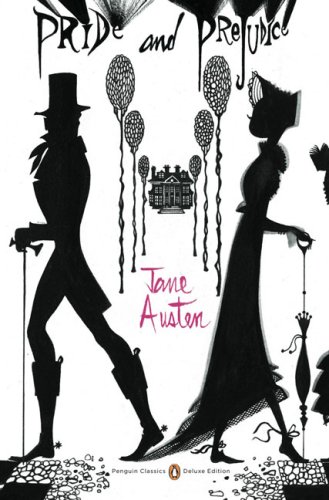
Ana's Rating
Readers Rating
I wrote this review for school, so this review may sound a little staged. My apologies.
On the bright side, this project has led me to one of my new life passions: The Lizzie Bennet Diaries. A modern twist on a favourite classic, I present to you a vlog starring your one and only Elizabeth Bennet.
Elizabeth Bennet is best described as playfully impertinent: outspoken, but honest, and critical of frivolousness. Despite her mother’s intentions and despite her century’s fashion, Elizabeth is determined to marry for nothing other than affection. No economic advancement will sate her thirst for true love. She’s a little ahead of her time.
Moreover, to her mother’s great displeasure, our Lizzie is dreadfully obstinate. For example, when her simpleton of a cousin proposed to her, Elizabeth refused him despite her mother’s threats of disownment. She even rejected Mr. Darcy when he proposed to her for the first time, saying “I had not known you a month before I felt that you were the last man in the world whom I could ever be prevailed on to marry.” Harsh, much? At the time, of course, I considered Darcy to be somewhat of an asshole, and so I rejoiced in this refusal.
Darcy is not an asshole. I learned this the hard way. But excuse me for being offended on Elizabeth’s behalf when he calls her ugly the first time they meet. And then later on, when he realizes that she’s not, in fact, as devastatingly grotesque as he first thought, he declares that “He really believed, that weren’t if for the inferiority of her connections, he should be in some danger.”. Well, by all means, Mr. Darcy. You should definitely pursue Elizabeth, then! Looks are all that matter in a relationship!
Nonetheless, you must not be fooled by this pride and prejudice. Despite his many flaws, Darcy is really a hopeless romantic at heart. When he first admits to Elizabeth his feelings for her, he says “In vain I have struggled. It will not do. My feelings will not be repressed. You must allow me to tell you how ardently I admire and love you.”. Swoon.
Darcy’s flaws are what make him real. They’re what make him human. They’re what make Pride and Prejudice something more than just a shallow, idealistic romance novel.
This book was actually originally entitled First Impression, and rightfully so. When you meet someone for the first time, you judge them. It’s a human default, if you will. However, this judgment is not objective. It’s based on your opinion of yourself and your opinion of the rest of the world: pride and prejudice. When Darcy and Elizabeth meet for the first time at a ball, Darcy deems Lizzie ugly and refuses to dance with her. What the reader must understand is that this is a natural reaction; Darcy stems from a family of an incredibly high class, so what’s some poor girl to him? As for Elizabeth, she declares that Darcy is conceited beyond all salvation and vows to hate him forevermore. For a large part of the novel, she even refuses to see any good in Darcy because she’s so offended about their first meeting.
This is just one of the novel’s many examples that demonstrate the undercurrents of pride and prejudice in society.
To return to Pride and Prejudice’s most prevalent theme, marriage plays a huge role in this novel. From its ironic first sentence, “It is a truth universally acknowledged, that a single man in possession of a good fortune, must be in want of a wife.” (Austen, page 1), to Mrs. Bennet’s thinly veiled representation of the theme of marriage, to the overbearingly nuptial focus of the plot, I think that I had a marriage overdose. Even when I finally understood the implications of living in the early nineteenth century, I dismissed all passages pertaining to the theme of marriage as frivolous and rolled my eyes through about two thirds of my reading.
At one point, however, Lizzie was talking to a haughty, proud and prejudiced character who was trying to separate the couple due to the social chasm between them. Elizabeth’s response was “He is a gentleman; I am a gentleman’s daughter; so far we are equal.”.
And then, finally, it hit me: Austen’s going on and on about marriage is really her means of social criticism. The theme of marriage is actually the theme of society’s injustice in disguise. In Austen’s chauvinist world, men and women were never equal; women had to marry in order to survive. Her grim portrayal of her society in Pride and Prejudice reflects that and condemns it. She does this not only through one-liners throughout the novel and the scolding of stereotypical theme advancing characters, but through the ultimate irony: Mr. Darcy makes ten thousand pounds a year, which is our equivalent of a millionaire. In defying her society’s expectations and marrying the man whom she loves, Elizabeth hit the jackpot.
Finally, I absolutely recommend Pride and Prejudice. Its characters and their romances will not fail to charm, its setting will most likely induce a reality check, and its themes will blow your mind. Moreover, you can enjoy this novel on many levels, be it thoughtless romance or profound criticism of early nineteenth century society. And, if not, you always have Pride and Prejudice and Zombies.

I’ll keep you posted,


![[Twitter]](http://www.whatyareading.com/wp-content/plugins/bookmarkify/twitter.png)
